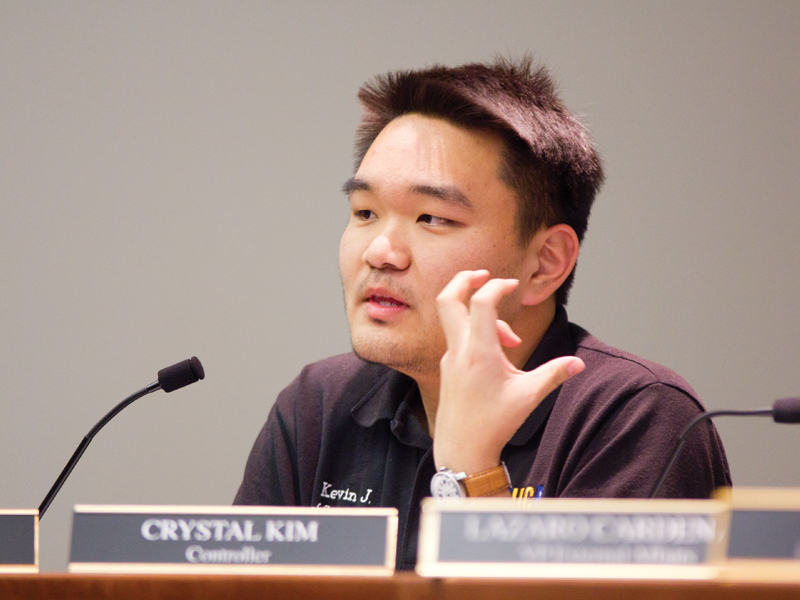
The ASUCR meeting on Wednesday, May 15 focused on the success of the Food Truck Festival, the restructuring of subcommittee reports and the introduction of new legislation by the Legislative Review Committee (LRC).
The Executive Cabinet (ECAB) delivered its reports for the week, with President Liam Dow announcing that freshman fellow Ravin Rathod would be succeeding Jane Kim as ASUCR’s web director as of Friday, May 17.
With the attendance of 3,000 students, ASUCR also lauded the success of the Food Truck Festival, despite the problem of long lines. The senate eagerly anticipated next year’s event, with Senator Chris Salvador ambitiously announcing, “We expect to have over 20 food trucks next year.” The success of the event was credited to undergraduate student and Student United Way Ambassador Elliot Thompson, who proposed the idea and helped direct the event, along with Jo, Salvador, Senator Spencer Castrellon, Senator Brian Leung, Vice Chief Justice Mark Orland and Circle K International. Senators attributed the success to high overall student turnout and involvement.
Parliamentarian Christopher Sanchez next reported that the executive branch (ECAB) subcommittee reports have been incorrectly structured during ASUCR’s meetings. Instead of keeping action items and policy items distinct—action items are projects that the senate must vote to approve, while policy items do not require a vote—ASUCR merged both action and policy items into a single section, subcommittee reports. The merge violates a section of Robert’s Rules of Order, the guide for conducting parliamentary meetings.
In addition, because the ECAB and senate rotate reports on a bi-weekly basis, executive officers and senators used the public forum period to present their views when they were barred from delivering reports. In response, Sanchez announced that future meetings would delineate action items and policy items, with action items falling under subcommittee reports and policy items gaining a new section, special reports. The new section would also allow each branch the opportunity to provide greater input, even when it is not their week to report. Sanchez enforced the ruling during the meeting to demonstrate how the section would work in future meetings.
President Pro Tempore Sai Patadia, chair of the Legislative Review Committee (LRC), brought up the most-debated topic of the night when he proposed changes to current bylaws that would give students additional notice when “controversial” legislation would be brought to the senate.
An argument over the word “controversial” ensued, with some members raising questions over whether it was the purview of the LRC to decide what was considered controversial. Members also debated over whether to apply the rule change during the current academic year or at the start of the next academic year, with some senators arguing that it would prevent the senate from passing legislation for the remainder of the school year.
Dow advocated for the senate to adopt the changes, saying, “We are fixing a transparency thing … I think it’s important to make a stand to be more transparent.” Academic Affairs Director Shadi Matar agreed that “the spirit behind this is good,” but expressed concerns over its implementation.
It was later suggested by Dow to clarify deadlines and change the text in the bylaw from “potentially controversial” to “necessary to outreach beyond normal procedures.” But his aims were frustrated when only two senators voted in favor of the proposal. Senator Aaron Johnson motioned to send the bylaw back to the LRC for further discussion and revision, saying “People obviously did not come to this meeting prepared” by having read the contents of the changes, as is required by the ASUCR Required Reading bylaw.








